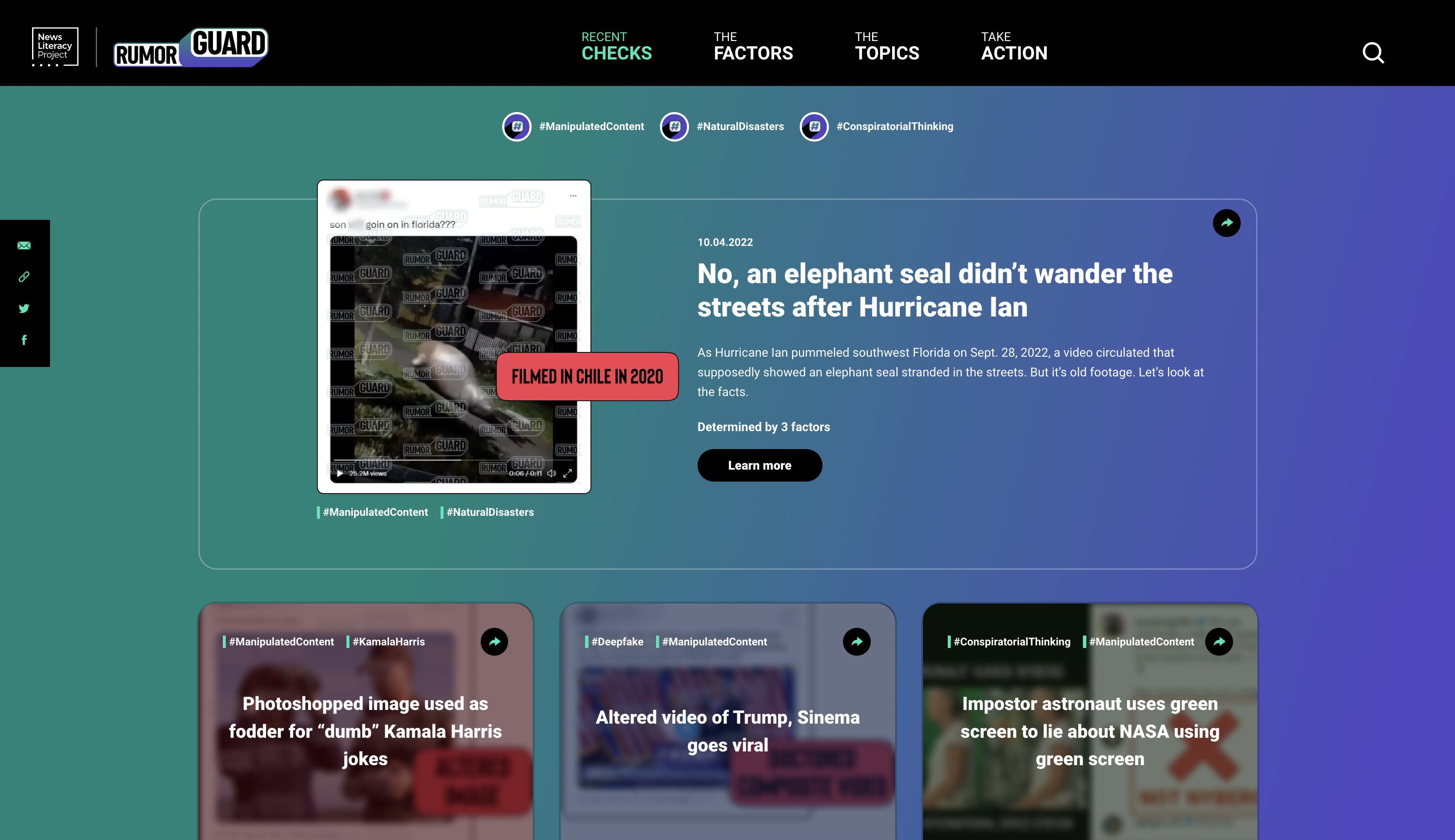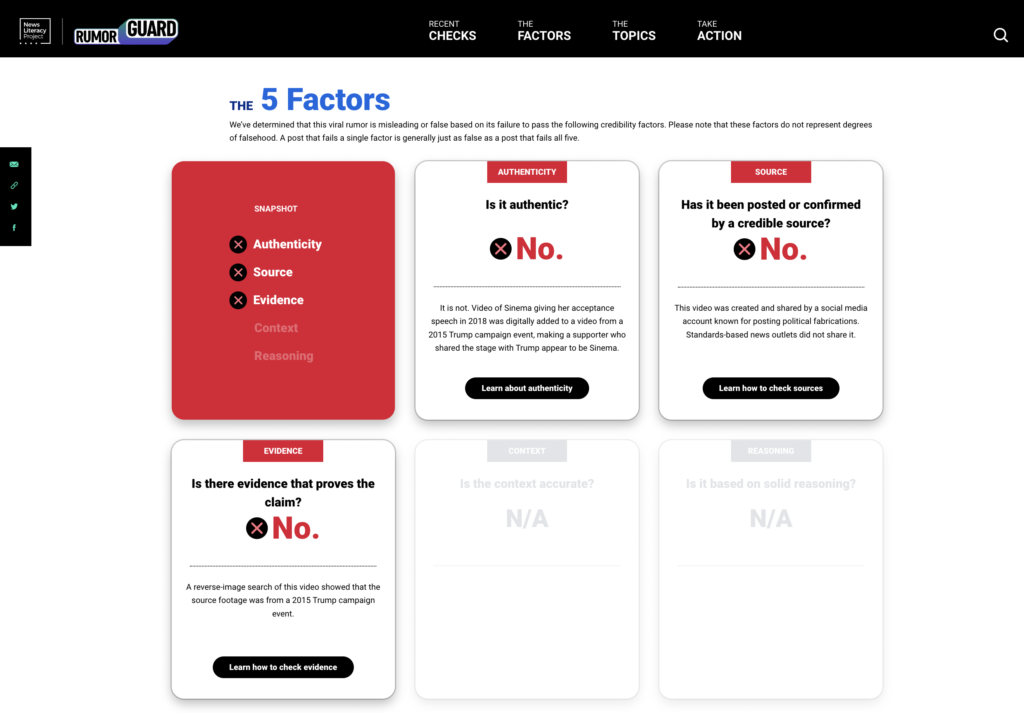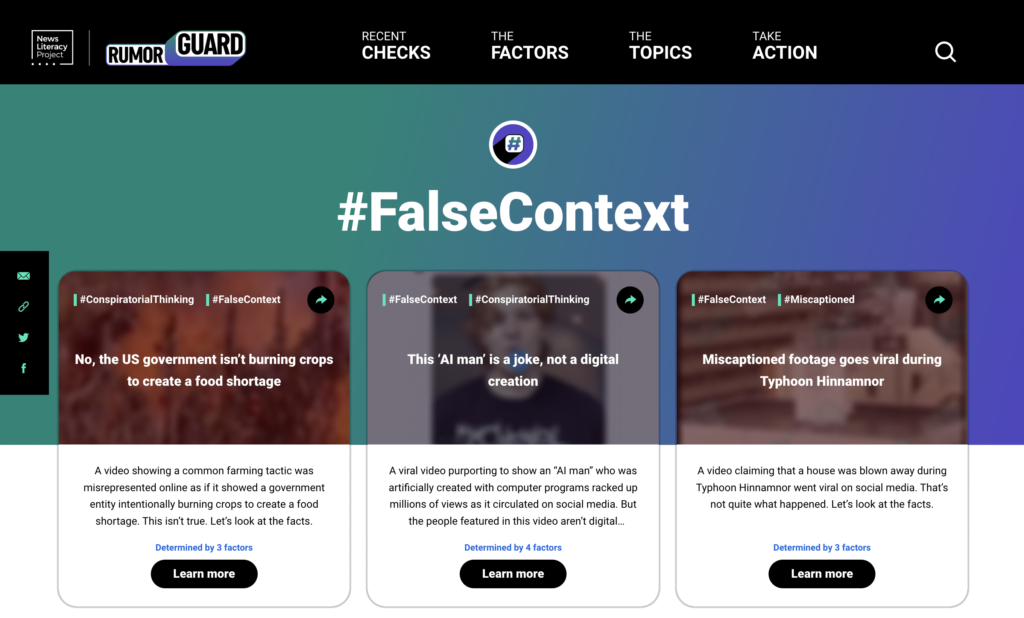National school librarian organization names RumorGuard to list of best digital tools
The American Association of School Librarians has named RumorGuard™, NLP’s platform that debunks viral rumors, one of its Best Digital Tools for Teaching & Learning.
Every year the AASL honors digital tools that foster innovation and collaboration, encourage exploration and participation, are user-friendly and offer information and references. Also recognized are Brown University’s Choices Programs, Discovery Education’s K-12 learning platform and National Geographic Society Educator Resources.
In October 2022, NLP launched RumorGuard, its first platform specifically for the public. RumorGuard debunks social media rumors based on five factors that help people determine the credibility of sources and information. It also provides news literacy takeaways for each post. And RumorGuard email alerts empower the public to help push back against mis- and disinformation.
While RumorGuard can be useful to all, NLP is the national leader in news literacy programs and resources for educators to use in the classroom. NLP also offers professional learning events, an online community of peers and a newsletter that covers the latest topics in news literacy. All resources and programs are free.
The American Association of School Librarians, www.aasl.org, a division of the American Library Association, empowers leaders to transform teaching and learning.
Stop falsehoods in their tracks: Join the RumorGuard
The News Literacy Project is encouraging everyone to push back against misinformation with its new platform, RumorGuard, which helps you know what’s safe to share and which rumors should be stopped in their tracks. It cites topical viral rumors and lays out exactly how the public can determine that a claim doesn’t hold weight, based on five factors for credibility.

The RumorGuard homepage.
Exploring RumorGuard
The platform covers all types of misinformation and categorizes it by topic, from manipulated content or engagement bait to pressing issues like climate change and politics.
NLP also built RumorGuard as the foundation for a common future founded on facts. The platform goes beyond traditional fact-checking and source verification by using debunked hoaxes, memes and other misinformation as the starting point for learning news literacy skills.
The five factors
Each RumorGuard post takes readers through the facts behind a specific viral rumor, then breaks down the five factors that can be used to verify any claim:
1. Authenticity: Is it authentic?
2. Source: Has it been posted or confirmed by a credible source?
3. Evidence: Is there evidence that proves the claim?
4. Context: Is the context accurate?
5. Reasoning: Is it based on solid reasoning?

This rumor failed to pass three of the five credibility factors: Authenticity, source, and evidence.
These factors connect users with sources and opportunities for learning and strengthening news literacy skills.

Learn and practice techniques to check reasoning.
NLP also encourages everyone to join the RumorGuard and act for facts by subscribing to our weekly newsletter, which debunks viral rumors. Then, share what you’ve learned with the wider community.
All of us can become well-informed and learn the skills to stay well-informed with RumorGuard, the newest addition to NLP’s comprehensive news literacy resources.
